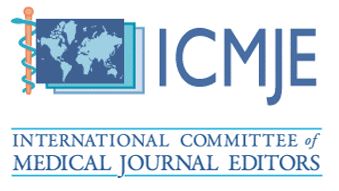Glycopeptide-Resistant Enterococcus Faecium Outbreak in An Onco-Hematology Ward
María Rosa Lago*1, Elena Rodriguez Zurita1, Nora M Martinez1, Verónica Bautista2, Esther Pareja3,
Jesús Oteo2 and Alejandro Gonzalez1
1 Section of Microbiology. University Hospital of Guadalajara. Calle Donantes de Sangre S/N 19002, Guadalajara, Spain.
2 Reference Laboratory and Research to Antibiotics and Infections Related to Healthcare. National Center for Microbiology, Carlos III Health Institute, Carretera de Majadahonda-Pozuelo, km. 2,200. 28220 Majadahonda, Madrid, Spain.
3 Onco-hematology Service. University Hospital of Guadalajara. Calle Donantes de Sangre S/N 19002, Guadalajara, Spain.
*Corresponding Author: Dr. María Rosa Lago, Section of Microbiology, University Hospital of Guadalajara, C/ Donante de sangre, s/n. 19002 Guadalajara, Spain. Phone: +34-949209200.
Received: June 25, 2022 Published: July 26, 2022
Abstract
In recent decades, there has been a worldwide increase in nosocomial infections due to multidrug resistant bacteria. The infections caused by multidrug resistant gram-positive microorganisms have a worse prognosis compared to those caused by sensitive pathogens, due in part to the fact that empirical antimicrobial treatments are not effective in a significant number of cases. In Europe, significant glycopeptide-resistant Enterococcus faecium (GREF) hospital's outbreaks had been detected in recent years. Even some countries have reached prevalence higher than 25%. In this study, we analyze the microbiological, epidemiological and clinical characteristics of an outbreak occurred at Guadalajara University Hospital (HUG) in Spain, which affected patients in the onco-hematology ward, as well as the preventive measures implemented for its control. The outbreak involves 28 patients, 21 as colonization and 7 infections. All isolates contained the gene vanA. The molecular results showed that the strains belong to the clone ST203, included in CC17. The 73.1% of the patients had been treated with vancomycin and teicoplanin in the 2 months prior to isolation of GREF. An early containment of the outbreak resulted from the implementation of a multidisciplinary approach by including patients contact isolation, taking colonization samples, intensifying hand hygiene, disinfection of the inanimate environment, workers training in prevention of infection transmission.
Keywords: glycopeptides-resistant; Enterococcus faecium; nosocomial; outbreak; onco-hematology unit.
Citation: Lago MR, Zurita ER, Martinez NM, Bautista V, Pareja E, Oteo J, Gonzalez A. “Glycopeptide-Resistant Enterococcus Faecium Outbreak in An Onco-Hematology Ward” SVOA Microbiology 2022, 3:3, 45-52.











